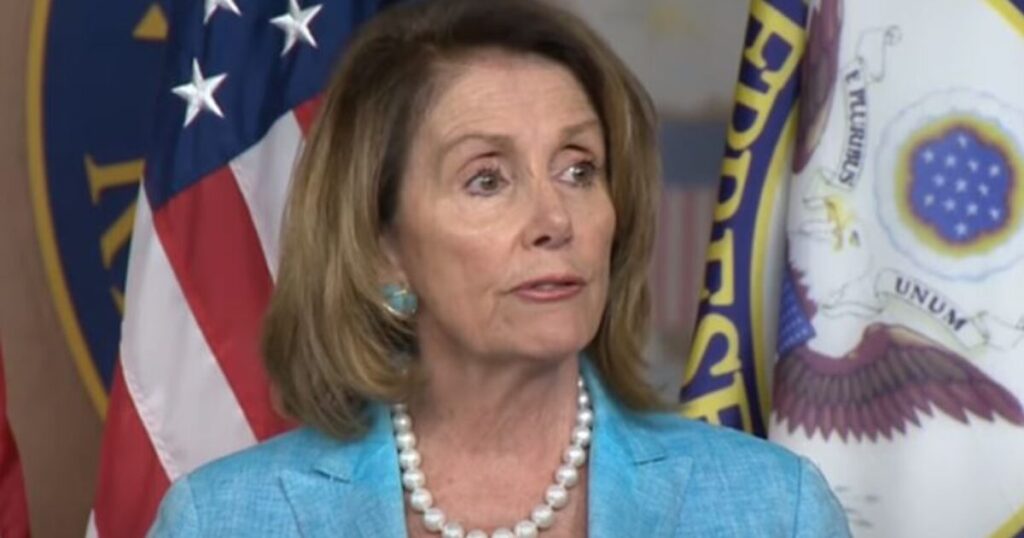Nancy Pelosi, the prominent California Congresswoman and former Speaker of the House, is experiencing a tumultuous and challenging period as her party grapples with significant losses in the political landscape. With Democrats losing control not only of the White House but also the Senate and the House of Representatives, her leadership and future in politics have come under scrutiny. Reports suggest that Pelosi’s mood reflects the gravity of these situations; during an interaction with CNN’s Manu Raju, she candidly expressed that she is doing “terrible” amidst the party’s downfall. This moment encapsulates the struggles she faces, as the defeat resonates deeply, affecting not only her personally but the entire Democratic Party.
Pelosi’s discontent is compounded by a series of events, notably the election of Donald Trump as President and the retention of Republican control in both chambers of Congress. The electoral outcome was a significant blow to her leadership and the Democratic agenda, with Trump achieving an impressive victory by sweeping critical swing states and winning the popular vote. For Pelosi, this marked a stark contrast to the earlier successes of the Democratic Party and reflected an unexpected revival of Republican dominance in Washington. Her frustration is evident as she navigates complaints within her party, which point to internal divisions and blame directed at various figures, including President Joe Biden, for the losses in the recent elections.
Additionally, the erosion of her party’s influence has raised questions about her future in politics. Given her lengthy tenure and the challenges facing the Democrats, discussions around her potential retirement have surfaced. While Pelosi has historically been a formidable figure in American politics, the consecutive losses, particularly in a crucial election cycle, amplify challenges to her authority and leadership style. The pressing sentiment among her peers regarding the need for change may leave her at a crossroads. Nonetheless, the question remains: Does she view retirement as a viable option, or does she believe she still has a role to play in guiding the party forward?
The repercussions of these political changes are profound, signaling a shift in ideologies and an alteration in the political playing field. The rise of new Republican figures, characterized by their populist stance and emphasis on America-first policies, adds another layer of complexity for Pelosi and her party as they seek to recover. The loss of the Senate, alongside the House, means that the Democrats will face more difficulties in pushing their legislative agenda, potentially leading to further disarray within the ranks. In this environment, Pelosi’s ability to unite her party and strategize effective opposition to Republican initiatives will be paramount if she hopes to regain influence.
Furthermore, the disarray within the Democratic Party raises essential questions about its identity and direction moving forward. The struggles faced by Pelosi and her colleagues may lead to a reevaluation of their policies and tactics, potentially sparking new leadership dynamics. With the Democratic Party experiencing severe losses on multiple fronts, including among its progressive faction, the need for a cohesive and strategic plan to rebuild the party’s image and appeal is increasingly evident. Pelosi’s reflections on recent events highlight the urgency for introspection and unity, as Democrats will need to forge a path that addresses both the desires of their base and the broader electorate.
In summary, Nancy Pelosi’s current predicament illustrates the challenges facing an experienced political leader amidst a dramatic shift in American politics. As she copes with the significant losses her party has endured, her candid acknowledgment of feeling “terrible” reveals the emotional toll such defeats can take on longstanding figures in government. The period of reflection and potential change for the Democratic Party looms large, prompting essential discourse on the party’s future and the role Pelosi will play, if any, in that transformation. As the landscape continues to evolve with new Republican leadership and emerging voter sentiments, the question of how the Democratic Party can regroup and regain its footing remains critical to the narrative of American politics in the coming years.

